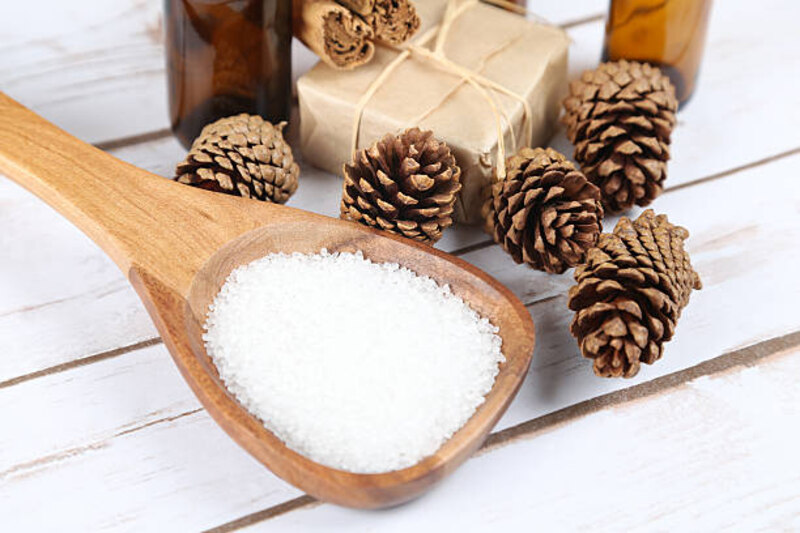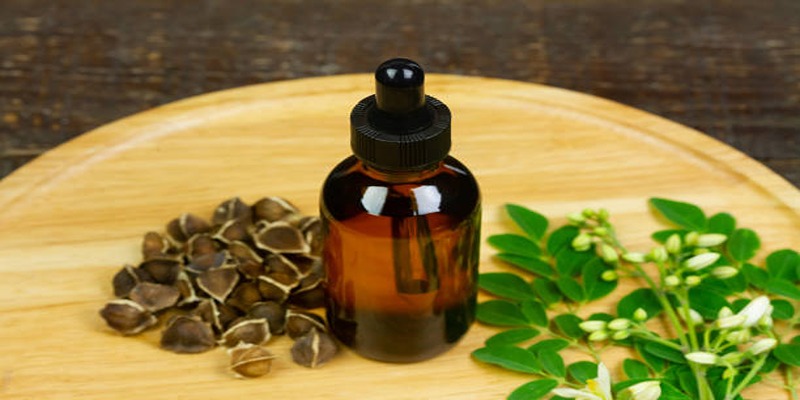Erythritol, a sugar alcohol, has seen a significant rise in popularity as a sugar substitute due to its near-zero calorie content and non-glycemic nature, making it a promising option for those seeking healthier alternatives without compromising on taste. It's found naturally in some fruits and fermented foods, but commercial erythritol is generally produced from corn using enzymes and fermentation. While it's considerably less sweet than sugar, it possesses a similar taste profile, making it the preferred choice among other sugar alcohols. Despite its benefits, potential digestive discomfort when consumed in large quantities is something users should be aware of.
Its use as a healthy alternative to sugar, erythritol is also popular amongst food manufacturers due to its shelf-stable properties and its ability to absorb moisture from other ingredients, making it an effective preservative. Some common applications include baked goods, dairy products such as ice cream and yogurt, sauces and dressings, energy bars, and even candy. Its cooling effect also makes it an ideal ingredient for gum and mints, as well as toothpaste.
The rise in popularity of Erythritol:
The sugar in erythritol's popularity can be attributed to a confluence of factors. The growing trend toward healthy living and fitness has spurred a demand for alternatives to sugar, given the well-documented negative health impacts of excessive sugar consumption. Erythritol, with its near-zero calorie content and non-glycemic nature, fits the bill perfectly. It finds favor among diabetics and weight-watchers, who can indulge their sweet tooth without affecting their blood sugar or caloric intake.
Furthermore, its natural occurrence in fruits and fermented foods lends it an aura of safety and wholesomeness, distinguishing it from synthetic sweeteners. The pursuit of sweetness without the guilt or health concerns has fueled the erythritol revolution.
The Making of Erythritol:

The commercial production of Erythritol involves a process known as fermentation. This begins with the extraction of starch from corn, which undergoes a process of liquefaction to break it down into simpler sugars. The resulting solution is then fermented using yeast or another suitable microorganism, which consumes the sugars and excretes erythritol. The fermented solution is heated to kill the yeast, after which the erythritol is separated from the solution.
It is then purified through a series of filtration and crystallization stages, resulting in the final product: a white, crystal-like powder that is ready to sweeten a multitude of food products, all the while maintaining a minimal impact on calorie intake and blood sugar levels.
Benefits of sugar free revolution:
- Erythritol is a low calorie sweetener with nearly zero calories, making it an ideal choice for those looking to reduce their caloric intake while still enjoying the flavor of sweetness.
- It has a minimal impact on blood sugar levels, making it suitable for diabetics or those trying to manage their blood glucose levels.
- It's non-glycemic, meaning that it won't cause a spike in blood sugar levels after consumption.
- It has a similar taste profile to sugar, but is considerably less sweet than the latter. This makes it ideal for those seeking sweetness without the intensity of regular sugar.
- Unlike certain artificial sweeteners, Erythritol is found naturally in some fruits and fermented foods, lending it an authenticity and safety that is not found in other sweeteners.
Erythritol as a Sugar Substitute:

Choosing Erythritol as a sugar substitute is not only a healthier option, but it also empowers individuals to take control of their dietary choices. Since erythritol shares a similar taste profile with sugar, it easily fits into recipes and food products as a direct replacement, making the transition seamless. Its non-glycemic nature is particularly beneficial for those managing diabetes or adhering to a keto diet as it does not cause any sharp spike in blood glucose levels post-consumption. For individuals mindful of their caloric intake, erythritol's near-zero calorie content allows them to enjoy the sweetness without the burden of excessive calories. Moderation is key, as excessive consumption may lead to digestive discomfort. Erythritol appears to be a viable sugar substitute that aligns well with the modern trend of conscious eating.
Comparison of sweetness and taste with regular sugar:
When it comes to the sweetness and taste, erythritol and regular sugar share a striking resemblance. Despite being approximately 70% as sweet as regular sugar, erythritol provides a similar mouthfeel and taste profile, making it an attractive alternative for those wanting to reduce sugar intake without forfeiting the familiar sweetness they enjoy. Erythritol carries a clean, sweet taste, without any bitter or chemical aftertaste that some other sugar substitutes.
This makes erythritol an excellent choice for baking, cooking, and beverage preparation, where it can seamlessly replace sugar. The slight difference in sweetness level might require a bit of adjustment in recipe measurements when substituting erythritol for sugar. It's worth noting that individual perception of sweetness may vary, and as with any dietary change, it might take some time for the taste buds to adapt.
Conclusion:
Erythritol, with its near-zero calorie content and non-glycemic nature, stands as a beacon in the sugar substitute landscape. Its similar taste profile to sugar, natural occurrence in fruits and fermented foods, and suitability for diabetics and weight-watchers make it a compelling choice for those seeking healthier sweetness options. While it is essential to be mindful of potential digestive discomfort from excessive consumption, erythritol's benefits far outweigh the minor adjustment period required when switching. As consumers increasingly lean towards health-conscious diets and alternatives to traditional sugar, erythritol's popularity is only set to surge. Indeed, erythritol is more than just a passing trend; it is a testament to the evolving sugar-free sweetener revolution.
FAQs:
What is the calorie content of erythritol?
Erythritol has nearly zero calories per gram, making it an attractive choice for those looking to reduce their caloric intake without compromising on sweetness.
Is erythritol suitable for diabetics?
Yes, erythritol's non-glycemic nature makes it a suitable choice for diabetics, as it does not cause any sharp spike in blood glucose levels post-consumption.
Is erythritol safe to consume?
Yes, erythritol is generally considered safe for consumption. It is naturally occurring in some fruits and fermented foods, and its production process involves no artificial or synthetic ingredients. However, it is recommended to consume erythritol in moderation, as excessive consumption may lead to digestive discomfort.




